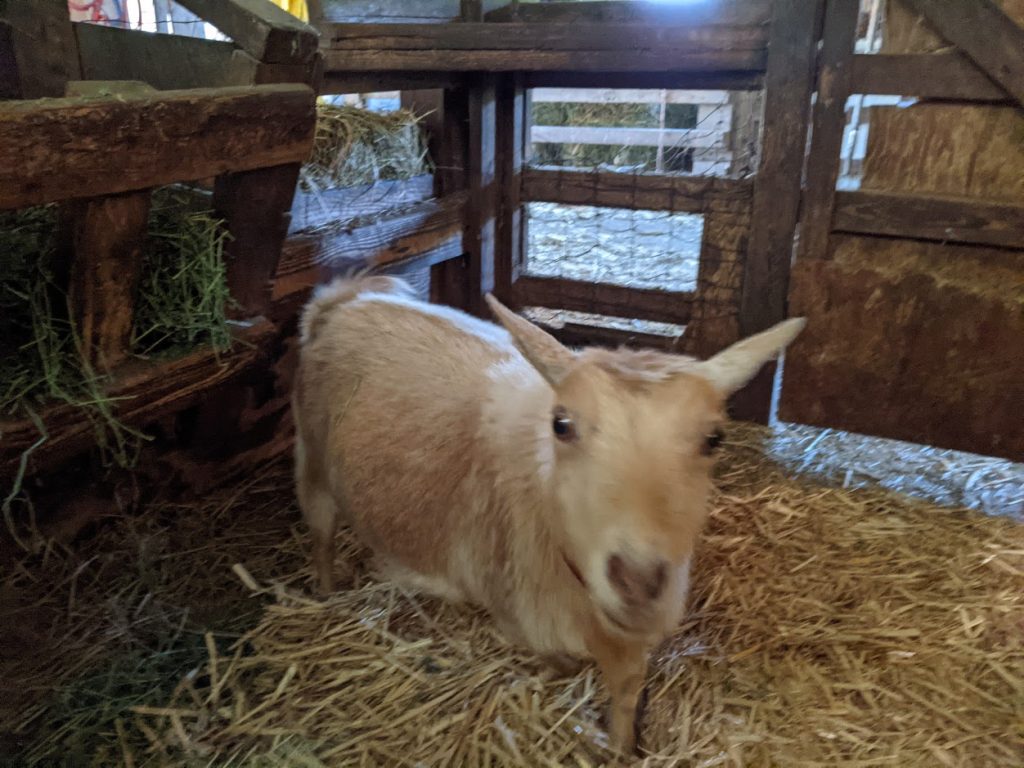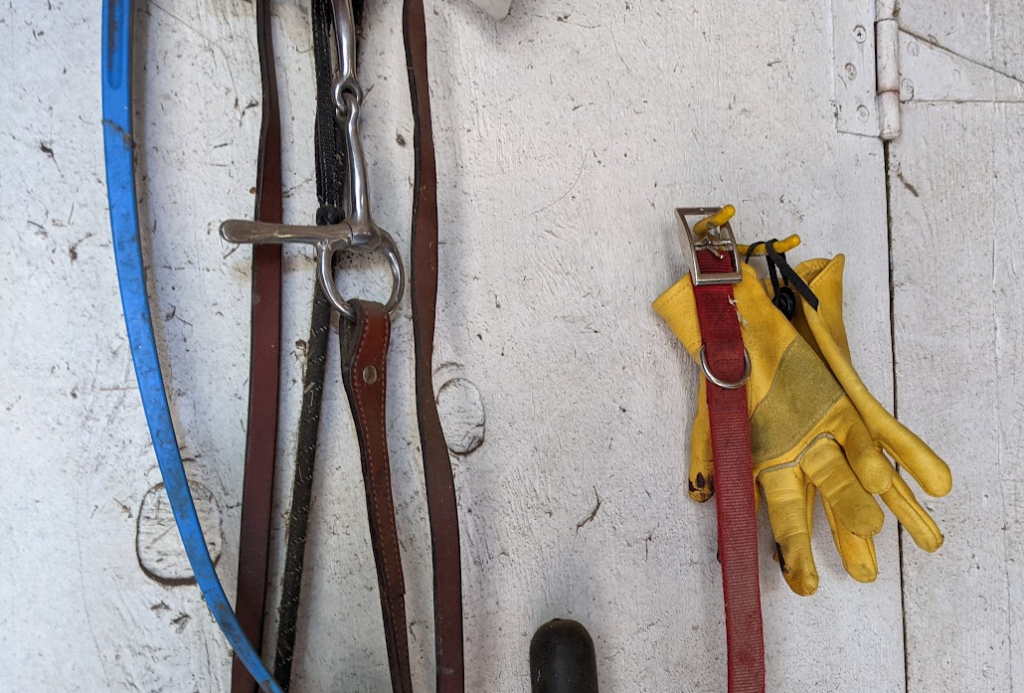You know there will be days like this. Knowing doesn’t help, though.
Finally everyone leaves. Finally. Thank God they came and thank God they are gone.
It’s warm but balmy, with a sliver of crescent moon hanging in the sky. The locust trees are in bloom and the night breeze carries the scent everywhere, that once-a-year impossible perfume. Nothing else says spring quite so definitively. The frogs are singing down in the meadow. It’s a beautiful night. Or it should be.
Faraway is still on the milkstand, where she died. I lift up the ragged old beach towel covering her, and I just sit for a few minutes with my hand on her side. She is still warm.

She was always one of the sweetest. When she was two or three I let her go to a friend of a friend’s house, an older woman who had lost one of her two elderly wethers and needed a goat buddy. Why would I send such a good milker for that job? Because she was so sweet, and she was getting too fat, and I kind of suspected that it wouldn’t be too long for the other old guy. And it would do her a world of good to be out foraging for blackberries and not spending her day with her head stuck in the feeder, which is what all the really good milkers want to do. So she went away. But she came back a year or so later, disorientingly svelte, and I had the feeling of having dodged a bullet.
But the bullet found us.
I go and get that cozy old fleece blanket and I spread it out in the tractor bucket. I swing Faraway from the milkstand into the bucket and tuck the blanket around her. I get the little black dutch-belted buckling, the most impossibly stuck kid ever. He is in two pieces, because in the end the vet had to cut him out.
“He’s already dead,” she said, answering the unasked question.
He is covered with bloody shavings, and I wash him off gently at the outside faucet. I tuck him into the blanket with Faraway.
I get the little gold doeling and wash her. Then I sit with her on a towel on my lap, and look her over properly. I never really got a chance to look at her. She looks just like her mother, sweet-faced and with the same quirky, questioning eyebrows. Stuck behind her brother, and born with no heartbeat. And all for nothing, because in the end Faraway’s uterus tore, and it couldn’t be fixed. The vet put her down a few minutes after her kids finally got out into the world.
Dolly lies just outside the barn door, watching everything, waiting to see what I will do next. I unbuckle Faraway’s red collar, and hang it on a hook outside the tack room door. There isn’t anything else to do. The backhoe will come in the morning, and thank God for that. It’s time to go in. It’s past time to go in.

But I reach inside the fleece blanket and I put my hand on Faraway again. And she is still warm.
“She’s still warm,” I tell Dolly.
We will stay with her for a while. Just for a little while longer. It isn’t much but it’s all we can do.